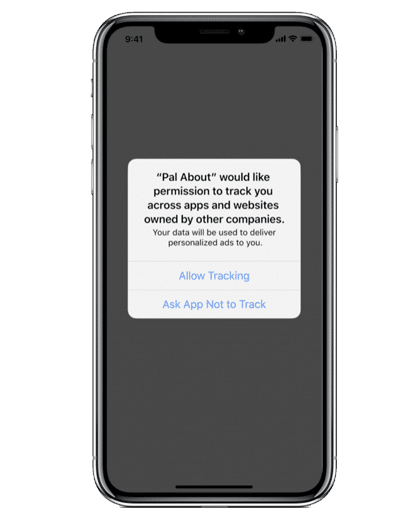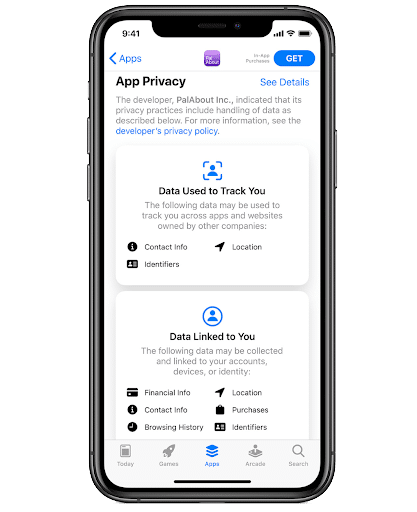Experiences refined for people
Experiences refined for people
Apple announced today that the upcoming iOS14 release will delay new privacy features that would have required app developers to obtain user permission in order to collect a device’s IDFA (ID for advertisers) — a unique identifier that is the backbone of advertising on mobile Apple devices. Previously, after installing iOS14 users would be automatically prompted to allow or prevent applications from tracking their device behaviors:

The general consensus is that a high percentage of Apple mobile users will opt-out of tracking when it does roll out sometime next year, although the actual number will not be known until a few months after the release. Additionally, app developers will be required to report on their user permissions, data tracking and privacy policy in order to increase transparency around mobile data collection.
Another eventual privacy update allows users to toggle an application’s location tracking from ‘precise’ to ‘approximate’, which will impact the capabilities of mobile advertising processes that rely on location data such as foot traffic measurement and location-based targeting.
The culmination of these changes equates to a major disruption for the mechanisms that power mobile advertising, but also provides consumers with more transparency and control over their personal data.
When a user opts-out of tracking in Apple devices, their device IDFA becomes unusable and cannot be passed to DSPs for inventory bidding. This eliminates the ability for marketers to deliver personalized advertising to the device and essentially renders the user as untargetable.
Companies and advertising platforms that rely solely on IDFA-based tracking are faced with limited options, but now have more time to prepare. The most viable is pivoting from IDFA to a deterministic identifier such as a user login or email, however this requires a clearly articulated value exchange. Users will need to feel confident they are receiving a service or experience from the application that is powerful enough to compel them to login.

These eventual changes will not affect our ability to provide the best-in-class managed service support that clients rely on from the KORTX team. This includes a continued emphasis on customizing first-party data strategies that are more critical than ever before.
KORTX campaigns will continue to incorporate mobile user targeting by leveraging existing partnerships that employ deterministic mobile segments rather than methods based on IDFA. Our Xandr integration provides access to more than 100M US mobile subscribers, from which AT&T sources location and browsing behaviors through a deterministic identification method that is unaffected by the loss of IDFA tracking. Other KORTX partners have first-party panel-based data that will continue to persist. We also see a potential opportunity for using deterministic IDs between app logins with website logins to create matches between desktop and mobile users.
Finally, the functionality of Axon Audience Manager provides key insights about our clients’ customers and site visitors, including those on mobile devices, which will inform audience activation tactics that are feasible without relying on IDFA tracking. Contact us to discuss a custom media and audience strategy that’s tailored for your potential and existing customers.
From us to your inbox weekly.